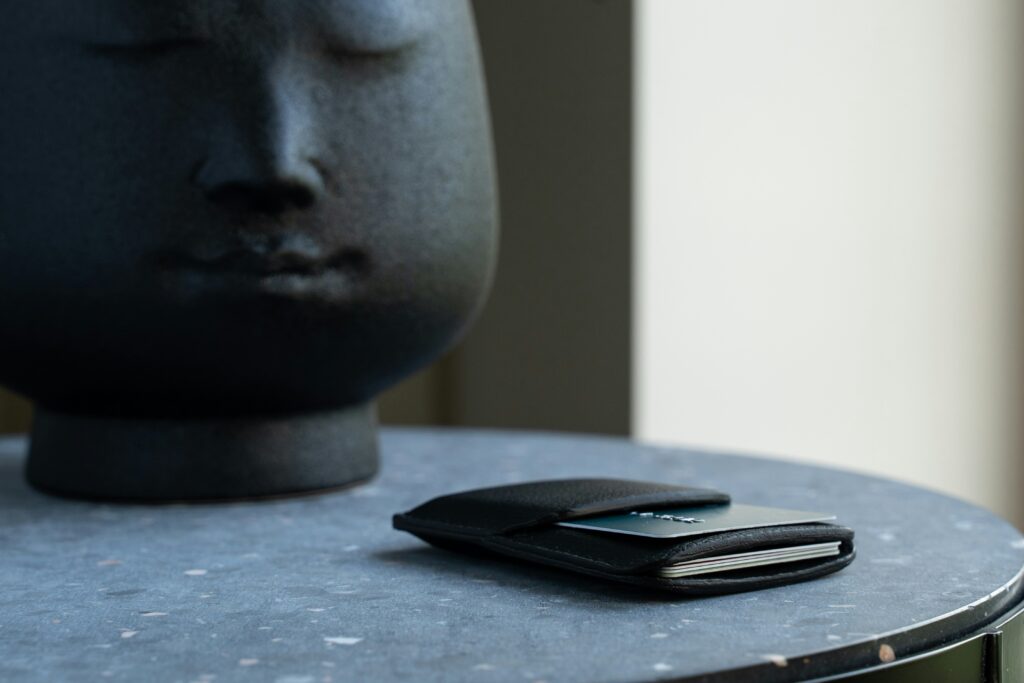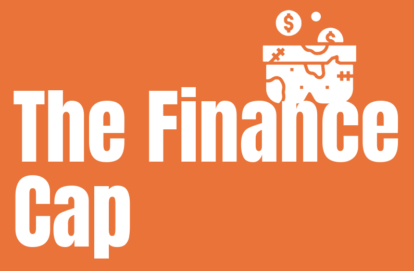Why You Should Have a Credit Card and How to Use It Responsibly
Credit cards are one of the most versatile financial tools you can have. They offer convenience, rewards, and security, making them a popular choice for managing purchases and building credit. But let’s face it: credit cards often get a bad rap, and for good reason. Mismanaging them can lead to debt, high-interest charges, and financial stress. However, why you should have a credit card is that they can work to your advantage, helping you save money, earn rewards, and establish a solid credit history. Here are a few examples of different types of credit cards that are available to you:
- Travel Credit Cards
- Cash Back Credit Cards
- Balance Transfer Credit Cards
- Business Credit Cards
- Airline Credit Cards
In this guide, we’ll explore why having a credit card is beneficial, how to use it responsibly, and why caution is key to avoiding financial pitfalls. Whether you’re new to credit cards or looking to improve your financial habits, this blog will provide you with actionable insights and strategies to maximize the benefits of credit cards while staying in control of your finances.
Why Should You Have a Credit Card?

Credit cards are more than just a convenient way to pay—they offer several benefits that can positively impact your financial health. Here are some key reasons why you should consider having a credit card:
1. Build and Improve Your Credit Score
Your credit score is a crucial factor in many financial decisions, from getting approved for a loan to securing favorable interest rates. Credit cards are one of the easiest ways to build your credit history, as responsible use is reported to credit bureaus. Consistently paying your balance on time and keeping your credit utilization low can help improve your score.
2. Earn Rewards
Many credit cards offer rewards programs, allowing you to earn points, cash back, or travel miles for your spending. For example, cash-back cards reward you with a percentage of your purchases, while travel cards help you accumulate points for flights, hotels, or other travel expenses.
3. Convenience
Credit cards are widely accepted and make shopping, especially online, quick and easy. They eliminate the need to carry cash and allow you to track your spending through detailed statements.
4. Fraud Protection
Credit cards often provide robust fraud protection. If your card is lost or stolen, you’re typically not held liable for unauthorized charges. Most issuers also offer advanced security features like purchase alerts and zero-liability policies.
5. Emergency Access to Funds
A credit card can act as a safety net in emergencies when you need to cover unexpected expenses. While this should not replace an emergency fund, having a credit card can provide temporary financial relief.
6. Purchase Protections and Perks
Credit cards often include perks like extended warranties, price protection, and purchase protection. Some even offer travel insurance, rental car coverage, and access to airport lounges, adding extra value to your spending.
7. Track and Manage Spending
Credit cards provide monthly statements, making it easy to review your expenses, set budgets, and monitor spending trends. Many issuers also offer apps with real-time tracking and categorization of purchases.
How to Use Credit Cards Responsibly
While credit cards offer many advantages, using them responsibly is essential to avoid falling into debt or damaging your credit. Here are some best practices for managing your credit card wisely:
1. Pay Your Balance in Full Each Month
The easiest way to avoid interest charges and debt is to pay off your credit card balance in full each month. Treat your credit card like a debit card by only spending money you already have.
2. Set a Spending Limit
Just because you have a high credit limit doesn’t mean you should use it all. Set a personal spending limit that aligns with your budget, and avoid exceeding it.
3. Keep Your Credit Utilization Low
Credit utilization is the percentage of your available credit that you use, and it plays a significant role in your credit score. Aim to keep your utilization below 30%, and ideally under 10%, to maintain a healthy credit profile.
4. Use Rewards Strategically
Choose a credit card with rewards that match your spending habits. For example, if you spend heavily on groceries or gas, opt for a card with bonus rewards in those categories. Redeem your rewards regularly to maximize their value.
5. Monitor Your Statements
Review your credit card statements every month to ensure there are no unauthorized charges or errors. Most issuers also offer apps and alerts to help you track your spending in real time.
6. Set Up Automatic Payments
To avoid late payments, set up automatic payments for at least the minimum amount due. This ensures you never miss a payment, which can negatively affect your credit score.
7. Avoid Carrying a Balance
Carrying a balance month to month accrues interest, which can add up quickly. If you can’t pay the full balance, prioritize paying more than the minimum amount to reduce interest charges.
8. Limit the Number of Cards You Have
While having multiple credit cards can increase your available credit, it can also make managing payments more complicated. Start with one or two cards and only add more if necessary for rewards or specific benefits.
9. Take Advantage of Perks
Learn about the perks your credit card offers, such as purchase protection, extended warranties, or travel insurance, and use them to your advantage.
Why Caution is Key with Credit Cards
While credit cards are powerful tools, they come with risks if mismanaged. Here’s why you need to be cautious:
1. High-Interest Rates
Many credit cards charge high interest rates, which can make carrying a balance costly. Even small balances can grow quickly if you’re not paying them off in full.
2. Overspending Temptation
Credit cards make it easy to spend beyond your means, especially if you view your credit limit as extra money. This can lead to debt accumulation and financial strain.
3. Fees and Penalties
Credit cards often come with fees such as annual fees, late payment fees, balance transfer fees, and foreign transaction fees. Missing payments can also trigger penalty APRs, significantly increasing your interest rate.
4. Impact on Credit Score
Misusing credit cards—such as making late payments, maxing out your limit, or opening too many accounts—can harm your credit score. A lower score can make it harder to qualify for loans or secure favorable interest rates in the future.
5. Dependency on Credit
Using credit cards as a crutch for everyday expenses or emergencies can lead to dependency. This can make it difficult to save money or manage your finances effectively.
How to Stay Cautious and Avoid Pitfalls

1. Stick to a Budget
Create a budget that outlines your monthly income and expenses, and use your credit card only for planned purchases within that budget.
2. Pay on Time, Every Time
Late payments can result in fees, penalty APRs, and damage to your credit score. Set reminders or enable automatic payments to stay on track.
3. Avoid Cash Advances
Cash advances often come with high fees and interest rates that start accruing immediately. Use your card for purchases only, and rely on an emergency fund for cash needs.
4. Choose the Right Card for You
Not all credit cards are created equal. Choose one that aligns with your spending habits, whether it’s cash back on groceries or travel rewards for frequent flyers.
5. Understand the Terms and Conditions
Read your credit card agreement carefully to understand interest rates, fees, and rewards programs. Knowing the fine print can help you avoid surprises.
6. Track Spending in Real Time
Use your card issuer’s app or online tools to monitor your transactions, set spending limits, and track your rewards progress.
Final Thoughts On Why You Should Have a Credit Card
Credit cards are incredibly powerful tools that can provide convenience, security, and rewards when used wisely. They can help you build your credit history, streamline expenses, and earn valuable perks such as cash back, travel rewards, and fraud protection. Whether you’re new to credit cards or a seasoned user, understanding how to use them responsibly is key to making the most of their benefits while avoiding financial pitfalls.
Responsible credit card use begins with developing good habits. Paying your balance in full each month, monitoring your spending, and setting a budget are foundational practices that ensure you stay in control of your finances. Using rewards strategically can also turn everyday purchases into savings or perks, such as free flights, statement credits, or exclusive discounts. By understanding your spending patterns and choosing the right credit card for your lifestyle, you can maximize rewards and minimize costs.
However, it’s essential to approach credit cards with caution. Overspending, carrying high balances, or missing payments can lead to financial stress, debt, and damage to your credit score. Being aware of potential risks, such as high-interest rates and hidden fees, helps you stay ahead and avoid common credit card mistakes. Remember, a credit card should be a tool to support your financial goals—not a source of unmanageable debt.
Ultimately, the best credit card is one that aligns with your financial priorities and habits. Whether you’re looking to build credit, earn rewards, or enjoy added perks like travel insurance or purchase protection, there’s a credit card to suit your needs. By using credit responsibly and keeping your financial health in mind, you can unlock the full potential of credit cards while maintaining control over your finances. Start making smarter financial decisions today and let your credit card be a partner in achieving your financial goals. With discipline and knowledge, you can leverage credit cards to your advantage and enjoy a secure and rewarding financial future.
